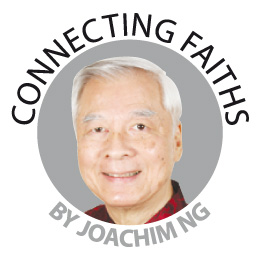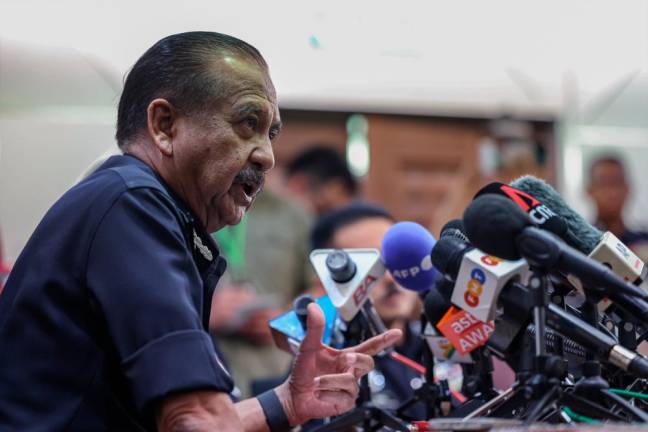AT 56 years of age, Malaysia ought to have developed a global culture of shared interests embracing the diversity that makes us truly Asia. But in shaping the nation we have failed to innovate a deeper multiculturalism. This lack of global shared interests is most pronounced in religion, with our continuing inability to grasp the idea of wholeness.
We remain elitists favouring our own religion as “the only way” or the “only safe way” and the latest thrill is the spectacle of persuading adherents from some other religion to convert in front of a jubilant crowd. This is not propagation of religious values; it is subversion of interfaith solidarity.
The practice of conversion originated from West Asia-Mediterranean Europe, a region known for its ceaseless wars between hostile civilisations over the past 4,000 years. In that context, when someone converted he crossed civilisational boundaries; he would now belong to another people. Switching communal alliances happened most frequently in wartime.
The big danger of inducing public conversion is that it destroys efforts to build a global culture of shared interests. If you win adherents from another religion, you provoke that community to erect defensive walls and man the barricades. So will you.
One technique of conversion that is centuries old – and long discredited by serious interfaith scholars – is to quote verses from another religion’s scripture that seemingly predict a successor, a passing of the baton. Except that this successor-in-waiting is the founder of a different religion in another part of the world a thousand years later. It’s easy to make a prediction fit any great personage, if you know the technique.
The Puranas (a set of Hindu scriptures) are often quoted by evangelists using this technique. These evangelists, if you follow their tracks, hail from rival faiths battling for converts. But the prey they pick on is the wrong one. Hinduism is a wise elder-brother religion that has cooked more ginger than any swashbuckling young chef who wants to save you with his dish.
Evangelists think of God as a supernatural being who creates the world, observes it in motion, and despatches a chosen one to save humanity. They emphasise a chosen “one” who has all along been destined, either as the only one ever or the final one forever.
To a yogi, evangelists have a lot to learn. For starters, it is possible that humanity may have another 300,000 years to go from today. The distant future is nowhere near.
In its wisdom, the Bhagavad Gita says: “Whenever there is a decline of righteousness, and the rise of unrighteousness, then I manifest myself. For the protection of the good, for the destruction of the wicked, and for the establishment of righteousness, I am born in every age.”
Any general decline of righteousness and the rise of evil justify the coming of a saviour. The scope is open-ended and unless the universe is burning out, there is no final saviour or final message. The setting of this Gita verse implies that a saviour comes with global content into a local context. Hence, interfaith scholars have found universalist strands in the teachings of every religion.
The perennial strength of Hinduism lies in its affirmation of a higher truth beyond your religious identity. What is it that is “born in every age”? Yogis and scientists both like the word “brahman” which tells you more than the overused word “god” that popularly denotes a supreme interventionist being. Brahman denotes a quantum field-like eternal presence that is all pervasive. The avatars or saviours are great personages that arise from this brahman field, similar to a wave taking form as a particle.
When you grasp the idea of brahman, you will realise that the means of salvation are available everywhere and accessible to all. Hear this verse from Khandogya Upanishad: “Now that light which shines above this heaven, higher than all, higher than everything, in the highest world, beyond which there are no other worlds, that is the same light which is within you”. This is the fundamental basis of our global commonality, our global earth family.
The writer champions interfaith harmony. Comments: letters@thesundaily.com














